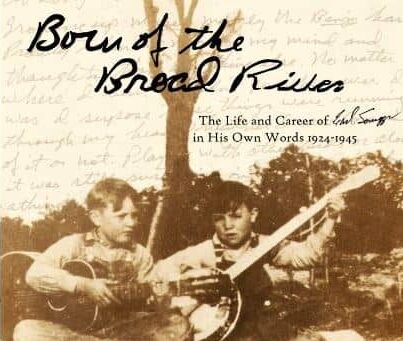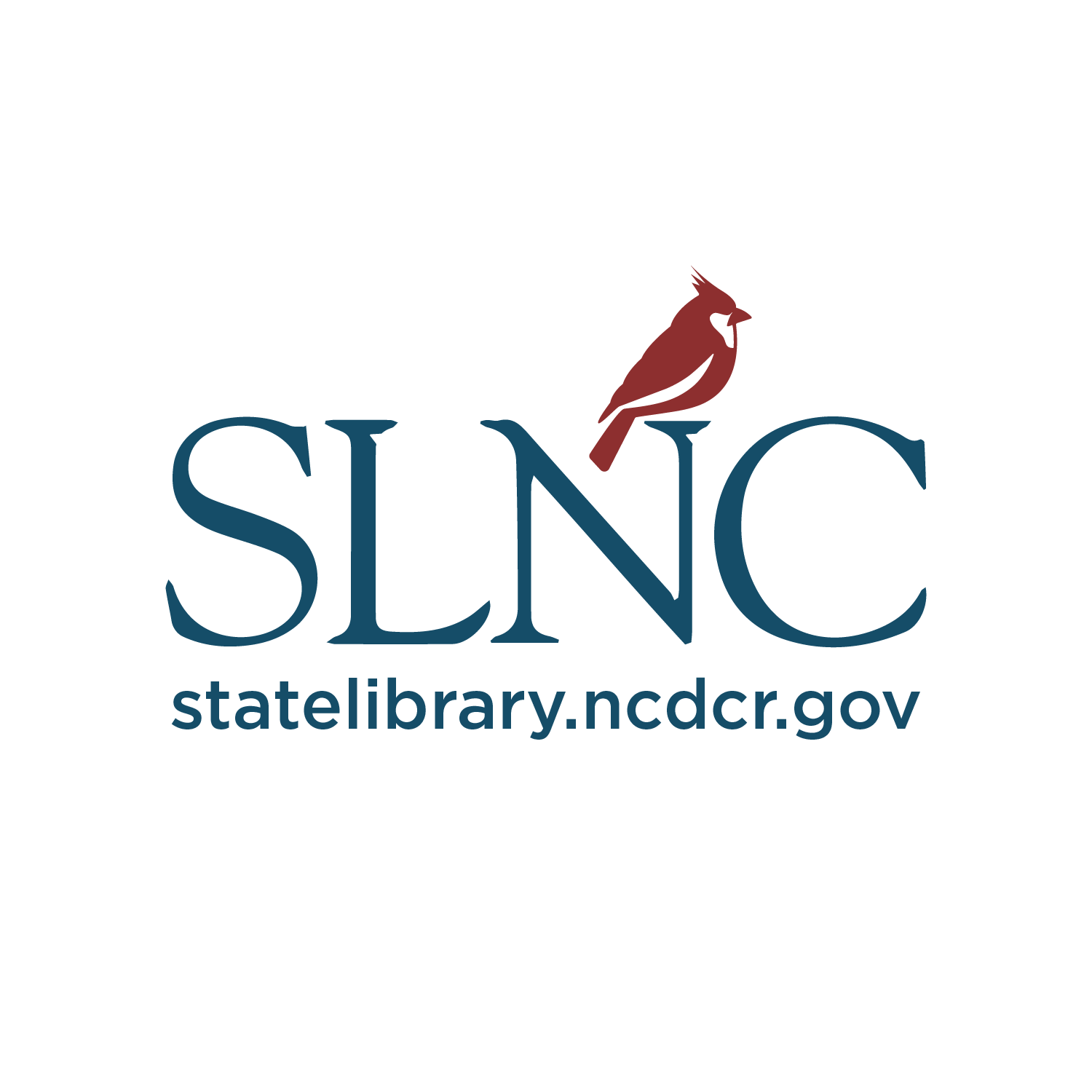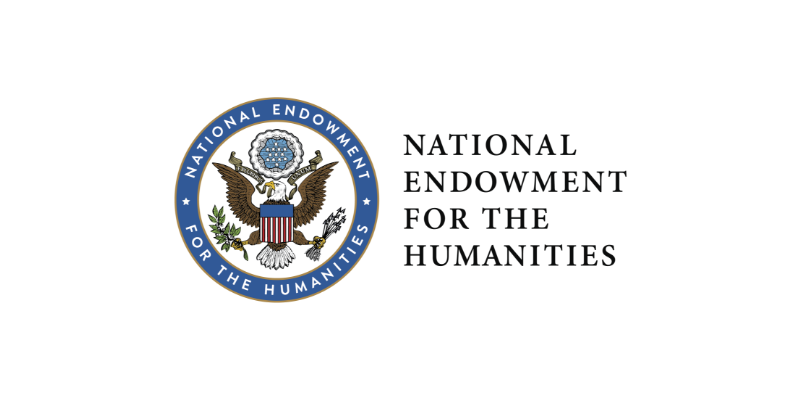North Carolina has a national reputation for its rich musical heritage. Artists like Nina Simone, Thelonious Monk, Doc Watson, and J. Cole have helped popularize and innovate Bluegrass, Blues, Jazz, Funk, and more. The Earl Scruggs Center in Shelby, North Carolina, celebrating legendary five-string banjo master, Earl Scruggs, and the area in which he was born and raised, has a reputation of its own.
In 2023, the Earl Scruggs Center received a $3,500 grant from North Carolina Humanities to construct the exhibit, “Born of the Broad River: The Life and Career of Earl Scruggs in His Own Words 1924-1945.” This original exhibit investigates the period of Earl Scruggs’ life from birth until twenty-one, making use of never-before-seen source material in the crafting of its narrative, including over 17,000 words of Earl’s own remembrances. The exhibit is currently on view now through December 30, 2024.
We connected with Zach Dressel, Assistant Director and Curator at the Earl Scruggs Center. Zach is a musician who found his love of Bluegrass music and museum work when he went to college at Appalachian State University. Zach shares about the exhibit with us and the importance of preserving the history and culture of rural communities.
Tell us about the Earl Scruggs Center.
Zach: The Earl Scruggs Center and our sister project, the Don Gibson Theater, were founded by Destination Cleveland County, a group of individuals here in Cleveland County who wanted to bring more cultural resources into the community, in the early 2000s. This year, the Earl Scruggs Center celebrates its 10-year anniversary and Earl’s 100th birthday. We are a museum dedicated to telling the life story and legacy of Earl Scruggs, who is from Cleveland County, and stories from our community. We’re also a performing arts center that hosts concerts of many genres and we organize educational programming. We are a cultural resource for our local community, keeping the roots of Bluegrass and traditional Roots music alive and and bringing the community experiences they might not get the opportunity to have otherwise.”
Who was Earl Scruggs?
Zach: In short, Earl Scruggs was a banjo pioneer who helped to develop and popularize Bluegrass music. He has such an impact on North Carolina music history. Like Jazz, Bluegrass was developed from a mixing of cultures and influences. He was able to build upon the work of several other North Carolina musicians who were creating a purely American form of music. The work he would go on later to do with his partner Lester Flatt, would also change the way that Americans were exposed to this type of music. They were one of the first music groups to have a television show in the early 1950s and were the musicians that recorded the Beverly Hillbillies TV show theme song. Here at the Earl Scruggs Center, we help share his story, shed light on where he came from, and educate people about his music.
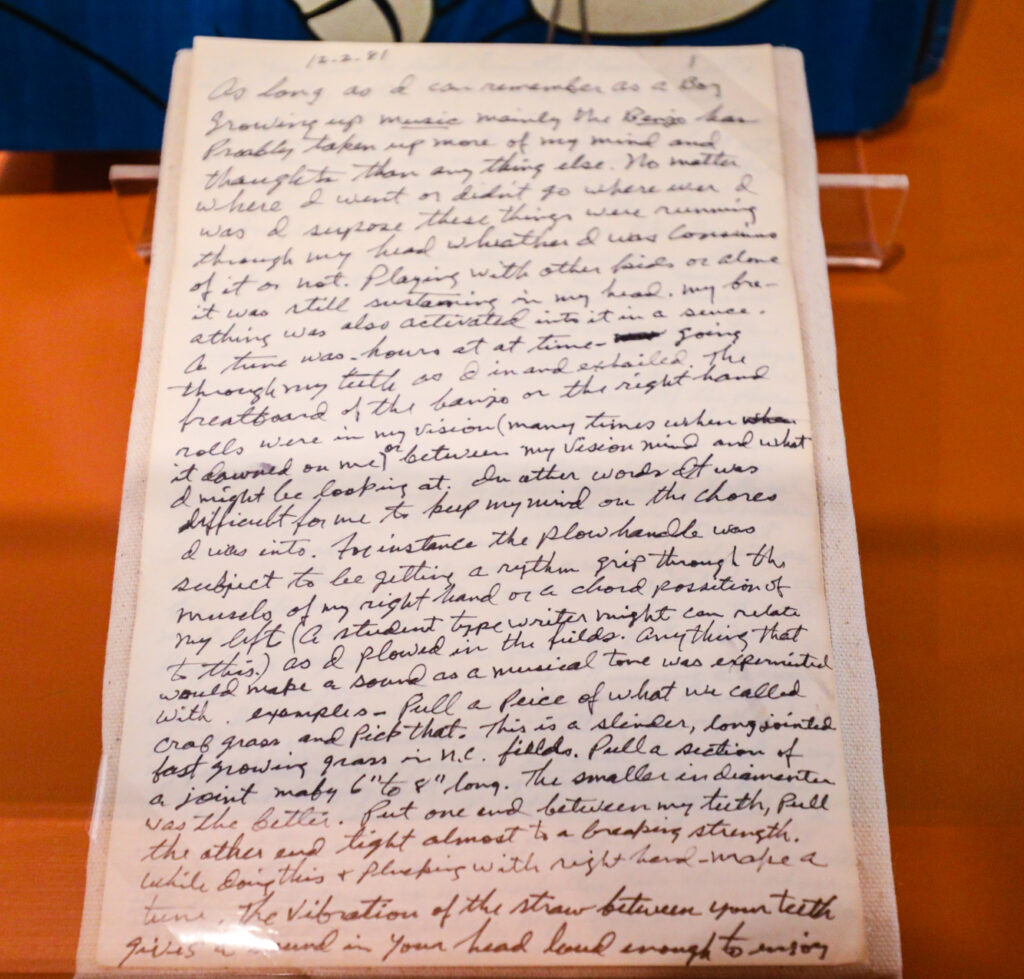
Tell us about the “Born of the Broad River” exhibit.
Zach: This exhibit started with a donation that the Center received from Earl Scruggs’ grandchildren in 2022. Most of the things that were donated were things of historical value. Over the next year, we started really digging into what we received and in doing so, I came across a notebook that was full of loose-leaf pages of things that Earl had written. What was written seemed to be the beginnings of a biography. The pages were filled with freeform writings of memories that he had of growing up, of his early days in music, and of his later career. After I transcribed over 17,000 words I thought, “We have the rare opportunity to tell the story of Earl’s younger years from his own words.” Since our 10-year anniversary and Earl’s 100th birthday were in 2024, we felt an exhibit like this would be perfect. We share new stories, perspectives, and oral histories given by bandmates and people that knew him in the community. We are dedicated to humanizing Earl, because at the end of the day, he was just a kid growing up in Cleveland County during the Depression. When people visit the exhibit, they will be able to see various pages from the notebook we found. There are also other things that were donated by the family including Earl’s childhood desk that his dad built before he passed away when Earl was four years old. We also have different memorabilia from his life here in Cleveland County and things related to his career like an auto harp that was owned by Maybelle Carter. In conjunction with the exhibit, we also have a programming series. Our last program is this November and is entitled, “Sacred Sounds of Western North Carolina: A Shaped Note Singing Workshop with Laura Boosinger”. Tickets are on sale for that program now and can be purchased online. We hope to see you there!
What does “Broad River” mean?
Zach: Broad River is the main river that flows through Cleveland County. Including it in the exhibit title is our nod to a region that is defined by its culture. The Broad River region includes the area of Cleveland County, Rutherford County, and Cherokee County, South Carolina that are not only regionally close, but also share musical connections. Musicians playing in Gaffney, South Carolina, were also playing in Boiling Springs, North Carolina and in Cliffside in Rutherford County and so on. All these different musicians knew each other; it’s how musical influence flowed between regions, just like the river. The house that Earl lived in was only a couple miles from the river, so he knew the river very well. A lot of his early gigs were playing at fish fries on the river when he was a child and could barely hold a banjo. The river played a very important part in his life.
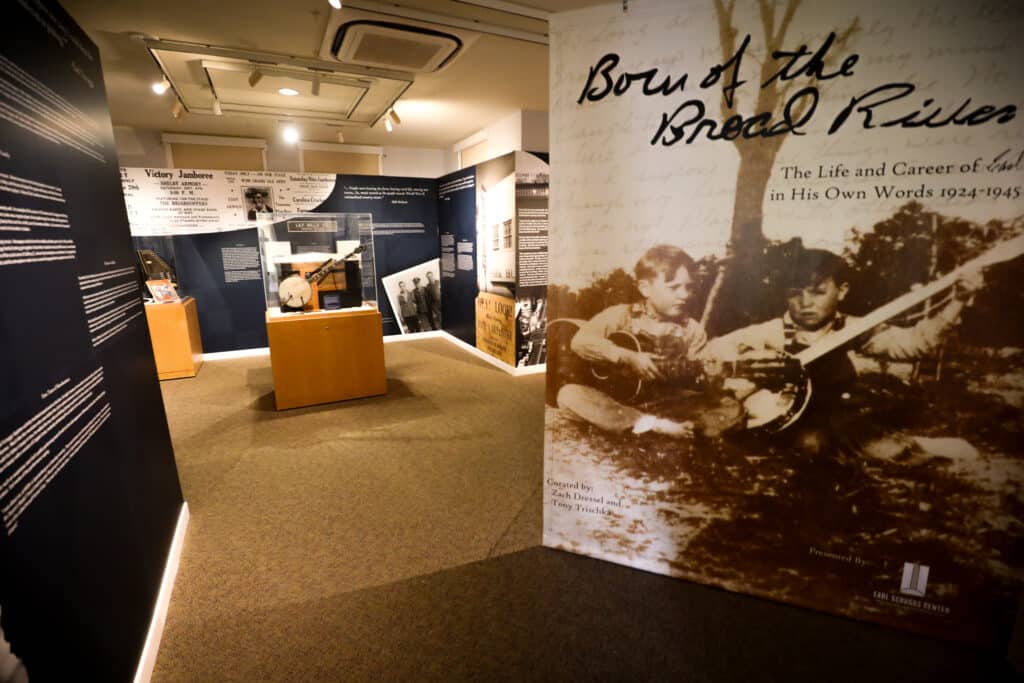
What has your experience been working with North Carolina Humanities?
Zach: We’ve worked with North Carolina Humanities in the past. In 2010 Gibson Theater hosted the Smithsonian exhibition, “New Harmonies: Celebrating American Roots Music” that NC Humanities was touring in the state. This was before the Earl Scruggs Center had a physical space and NC Humanities helped us through that process of building ideas for the museum. The funding we received from NC Humanities for this project allowed us to create graphics for the exhibit, which in my opinion, is the most important part of the exhibit. We were able to wrap our walls in full vinyl for the first time ever which allowed us to achieve a lot of unique graphic details and really bring that “wow” factor. NC Humanities staff have done a great job at helping us throughout the process. NC Humanities is easy to work with, open and communicative.
Do you think the humanities, history and heritage are important?
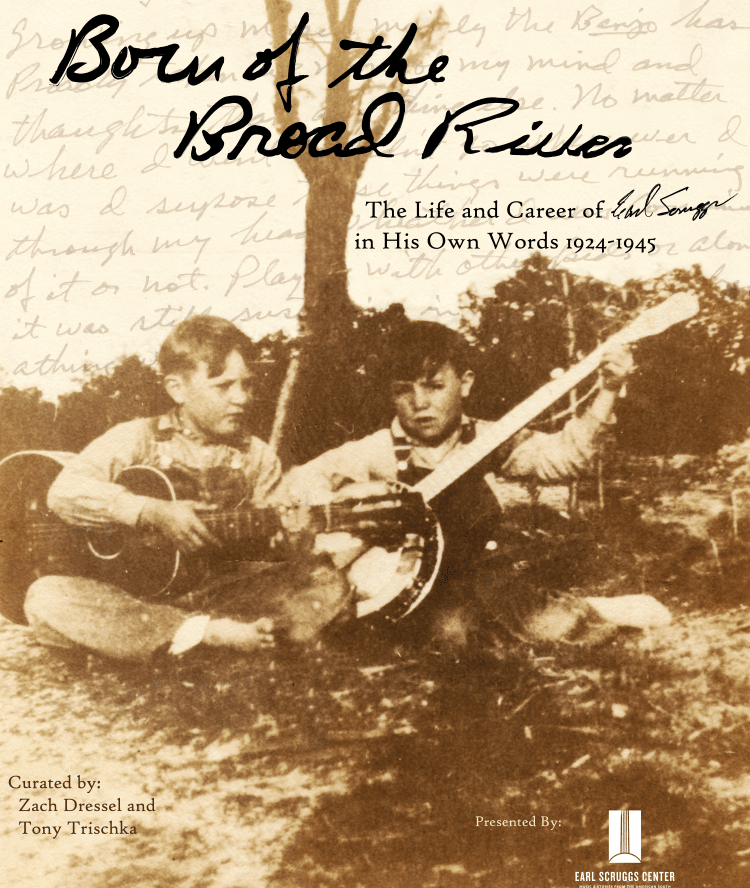
Zach: For rural communities like ours, heritage is what keeps us together. It’s something that you can celebrate. I’m very fortunate that here in Cleveland County, people celebrate history so much, and I think it’s because people here really care. I serve on the board for Historic Shelby Foundation, which is the big preservation nonprofit for historic structures here in Cleveland County and we’ve seen tremendous growth in recent years as so many people are respecting older buildings, sharing their stories and giving them a new life. Telling stories is so integral to our culture. I think that North Carolina has such an impactful history and we really have to work on keeping that alive because it’s important. If people are interested in learning more about North Carolina museums, they can follow a group called Museums in Partnership, which is through the North Carolina Department of Natural and Cultural Resources.
How can people support the Earl Scruggs Center?
Zach: Keep an eye on our calendar! Labor Day weekend we will have our annual Earl Scruggs Music Festival at the Tryon Equestrian Center. We’ll also have our annual fundraising concert in the early spring of 2025. On our website, you can donate or become a museum member which comes with a lot of benefits like discounted tickets and merchandise. We also always take volunteers, whether that be for special events or daily here at the museum. We hope you will come to visit the museum; it’s definitely worth visiting more than once.
About North Carolina Humanities’ Grantee Spotlights: NC Humanities’ Grantee Spotlights shine a light on the incredible work of our grantee partners, offering details about their funded project, and feature a Q&A with a team member(s) associated with the organization. This interview has been edited for length and clarity.


